by Dr. M | Jan 8, 2019 | Cataracts, Cornea, Dry Eye, Exam, Experience, Medical Eye Care, Procedure, Vision
Corneal Therapy offers Successful Healing
Moran Eye Associates’ Dr. Bianca Tang recently used an innovative treatment to help a patient’s cornea heal faster and more effectively. This treatment promotes healing using amniotic membranes suspended in a ring that sits on the eye like a contact lens.
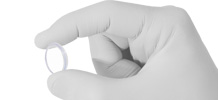
Prokera Corneal Treatment
The patient had been using prescription drop therapy over a period of months to help with a painful area of corneal thinning, but her eye wasn’t getting better. She was in pain, and and she was having cloudy vision. She was over 80 years old, and had other health issues that caused slower healing.
What did the patient think of the process?
“Dr. Tang recommended a new procedure that cured my cornea erosion issue. It was a stem cell lens that aided healing of the cornea. I now have my sight back in both eyes with no pain. Thank you so much for using this new procedure. It worked like a charm.”
The treatment Dr. Tang recommended was Prokera. The amniotic membranes in Prokera are safe, promote new cell growth, and prevent the development of scar tissue. The membrane itself dissolves after one week, and the doctor removes the ring following treatment.
Dr. Tang’s response to the results.
“The outcome was even better than I could have imagined. The area of epithelial defect that covered almost a quarter of her cornea was completely resolved. The most rewarding part of this treatment is knowing that the patient was no longer in pain, and that her vision was much improved.”

Prokera Corneal Treatment
Studies show that using amniotic membranes:
- Reduces pain
- Reduces inflammation
- Reduces Scar Formation
- Introduces essential factors for new cell growth
Whether managing disease, trauma, or post-operative care, healing of the ocular surface is essential to patients’ comfort and vision.
At Moran Eye Associates, our doctors offer excellent care that is personalized, innovative and effective. You can depend on us for all of your eye care needs for your entire family.
by Dr. M | Jan 3, 2019 | Appointment, Diabetes, Dilation, Exam, Glaucoma, Low Vision, Macula, Mark Moran, Medical Eye Care, Patient Care, Retina
Your annual eye exam offers a look at more than just your vision.
You may have heard that the eyes are the windows to your soul, but did you know that they provide a look at your overall health as well.
Your dilated eye is an open window where blood vessels and nerves can be clearly seen. The view through the open pupil is a unique means of detecting health issues including:
Your eye doctor may be the first to alert you to developing health problems.The American Optometric Society reported that in just one year, over 250,000 patients were diagnosed with diabetes after their optometrists reported concerns. Early diagnosis and treatment are vital for the health and vision of diabetic patients.
Changes or fluctuation in your vision may also be an indicator of a larger health problem. Report blurred vision to your eye doctor, it may be a sign of increased blood sugar levels and the need for medical treatment.
Uncontrolled diabetes can have severe consequences. Loss of vision due to diabetic retinopathy is a primary concern. Diabetes is the leading cause of blindness in people under the age of 74, so a regular schedule of dilated eye exams are important for diabetic patients. If you know someone who is diabetic,or has a family history of the disease, make sure that they are getting the eye care that they need.
Our goal is to keep you healthy!
Dr. Moran and Dr. Tang not only provide excellent vision care, they are essential partners for your general health and well-being. If you are overdue for a vision exam, don’t delay. Call us to schedule your appointment, Monday through Friday from 8 am to 4 pm.
For a video of a dilated eye exam, click here National Eye Institute Dilated Eye Exam
by Dr. M | Dec 5, 2018 | Diabetes, Dilation, Education, Exam, Eyeglasses, Floaters, Glasses, Medical Eye Care, News, Office, Patient Care, Retina, Uncategorized, Vision
How does Diabetes affect your eyes?

Diabetics need to see their eye doctor at least once a year.
Diabetes can cause damage to the blood vessels that supply the retina. These damaged blood vessels may leak, swell or bleed causing problems with your vision. Diabetes can also increase the growth of cataracts, and increase your risk of glaucoma. Changes in your blood sugar can cause blurriness in your vision, and fluctuations to your glasses prescription.
What is the best way to keep my eyes healthy?
Annual eye exams are important, because left untreated, diabetic retinopathy can worsen, and lead to blindness. Patients with uncontrolled blood sugar are at a higher risk for problems, but even patients who control their diabetes can develop issues.
Are there warning signs of diabetic eye disease?
Whether you are diabetic or not, if you notice any changes to your vision, you should see your doctor as soon as possible. If you notice a change in prescription, any cloudiness, blind spots or increased floaters in your vision, you should see your eye doctor.
Will controlling my blood sugar help my vision?
Yes. Swings in your blood sugar readings can cause changes to your vision. High blood sugar can cause swelling in the eye, which can affect your vision. If your blood sugar fluctuates, your vision will fluctuate too, and you may find that your glasses don’t work effectively.
Is there a way to treat diabetic retinopathy?
There are different options for treating diabetic retinopathy. Dr. Moran and Dr. Tang can discuss which options are best for your needs. There laser treatments which target the damaged vessels, as well as medications which can help preserve your vision.
If you are Diabetic, Annual Vision Exams are a MUST!
Diabetics have special needs when it comes to taking care of their eyesight. With a dilated exam, your doctor can detect and begin to treat diabetic eye disease before you notice any vision changes. Your annual exam allows our doctors to check for early onset cataracts and glaucoma.
If you (or someone you care about) has diabetes, make sure to connect with the trusted eye care team at Moran Eye Associates.
Call our office to schedule an appointment 610-628-2022.
by Dr. M | Nov 29, 2018 | Contact Lenses, Education, Exam, Experience, Fun Stuff, Glasses, Vision
Follow us on Instagram!
When you follow Moran Eye Associates on Instagram, you’ll see office news, cool eye information, and other fun stuff! You might even learn a little something too! https://www.instagram.com/moraneye
by Dr. M | Oct 23, 2018 | Cataracts, Cost, Education, Exam, Glaucoma, Mark Moran, Medical Eye Care, Procedure, Surgery
The iStent Inject: This procedure may eliminate the need for daily glaucoma drops!
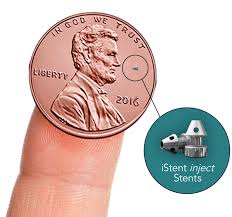
Size of the iStent Inject
Dr. Mark Moran is now offering Micro-Invasive Glaucoma Surgery (MIGS) with the iStent Inject. This option is currently available for glaucoma patients who are having cataract surgery.
Clinical studies have shown a significant decrease in eye pressure in mild-to-moderate glaucoma with this implant. It is interesting to note that the iStent Inject is the smallest medical device known to be implanted in the human body. The picture to the right shows the actual iStent as a tiny speck on the face of a penny!
An Alternative to Glaucoma Drop Therapy
If using drops to control your glaucoma poses problems for you, this procedure may be a great alternative. Ask yourself if you have these issues with your glaucoma medication:
- Do you have problems putting drops in your eyes?
- Do you forget to use your drops as prescribed?
- Do you have financial concerns with the cost of prescription drops?
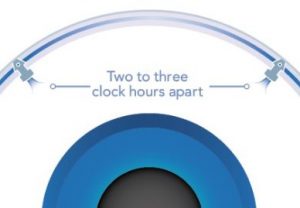
iStent Inject in place
How the iStent works: During cataract surgery, Dr. Moran inserts these tiny stents to create two openings between the front part of the eye and the eye’s natural drainage pathway. This improved flow decreases the pressure in the eye.
Insertion of this FDA approved device is painless. You won’t be able to see or feel these microscopic devices. They are so small that you won’t have to worry about going through an airport metal detector or having an MRI.
This combined cataract/stent procedure does not significantly increase the amount of time that you will spend in the operating room. The recovery time from this procedure is the same as with cataract surgery alone.
Dr. Moran explains the results: “I’ve seen a decrease in pressure in the patients who have had the stents inserted. Many have stopped using their drops altogether. We remind patients that this stent procedure is a treatment, NOT a cure for glaucoma. You still need to follow up with regular appointments to monitor your glaucoma, and maintain the health of your eyes.”
If you have questions about glaucoma, cataracts, or any other vision concern, call to make an appointment at 610-628-2022. Dr. Moran and Dr. Tang would be happy to review your history and discuss if this procedure is right for you.
by Dr. M | Sep 19, 2018 | Dry Eye, Education, Exam, Experience, Glaucoma, Low Vision, Mark Moran, Medical Eye Care, Patient Care, Vision
 The certificate has arrived, so now it is official!
The certificate has arrived, so now it is official!
Bobbi Spain has received her COA designation from the International Joint Commission on Allied Health Personnel in Ophthalmology (JCAPHO). Bobbi is our surgical coordinator, who works with LASIK and cataract patients. She was surprised to see that the package from JCAPHO also included an official COA card, pin and patch!
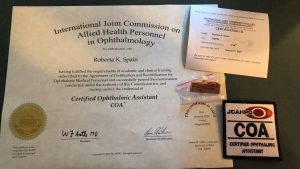
Official Certification
To provide the best care for our patients, the staff at Moran Eye Associates makes learning a priority. Every member of the team takes part in monthly compliance training, as well as taking on additional programs of study in general ophthalmology, low vision, dry eye management, regulations and billing. They also attend industry conferences each year to keep up with advances in technology and and patient care.
In 2017, Mandy, Beth and Dr. Moran attended the American Academy of Ophthalmology (AAO) conference in New Orleans. In April of this year, Bobbi and Cindy accompanied Dr. Moran to the American Society of Cataract and Refractive Surgeons (ASCRS) in Washington, D.C.

Bobbi joins Mandy and Cindy, who already have their COA certificates on display. Mandy received her COA in 2017. Cindy has been a COA since 2004. In order to maintain certification, a total of 18 credits in continuing education must be completed every three years. Eighteen credits is an easy to complete at Moran Eye Associates, where continuing education plays a key role in our success!
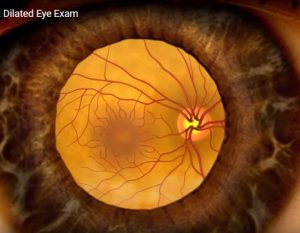
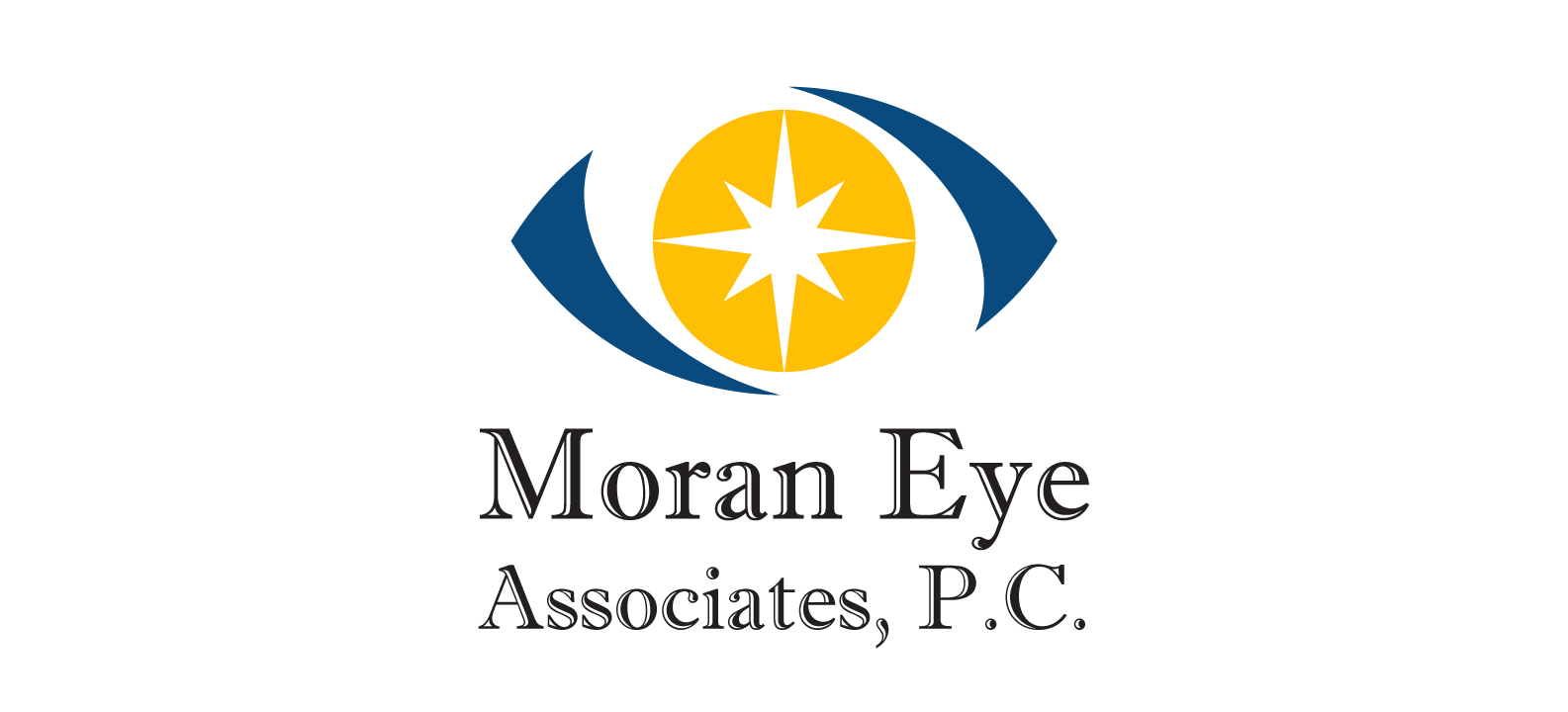





 The certificate has arrived, so now it is official!
The certificate has arrived, so now it is official!
